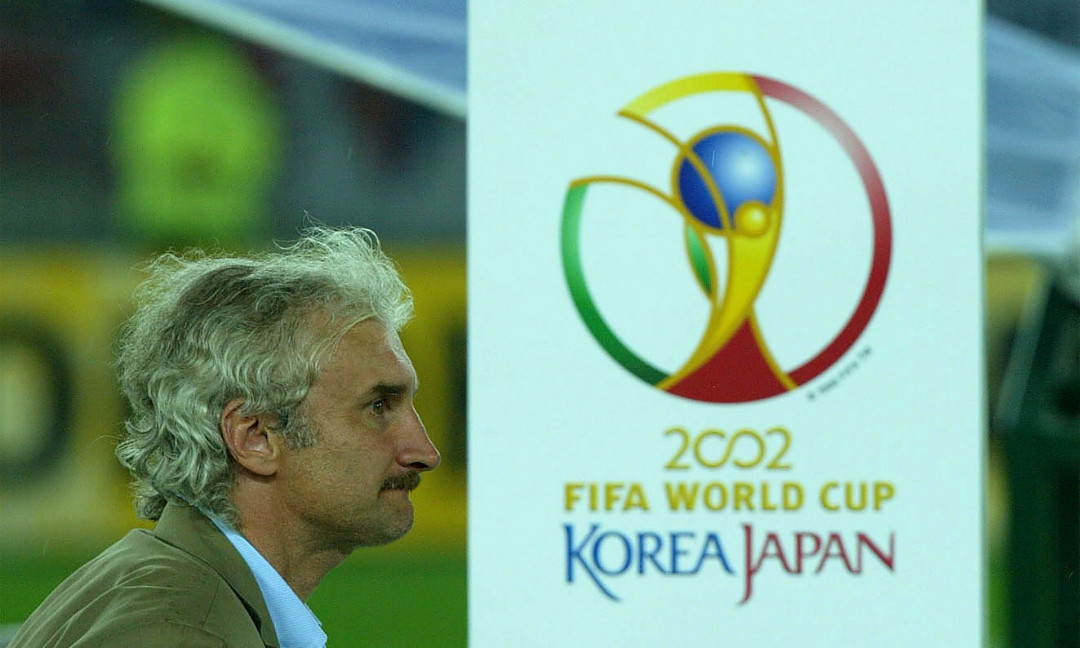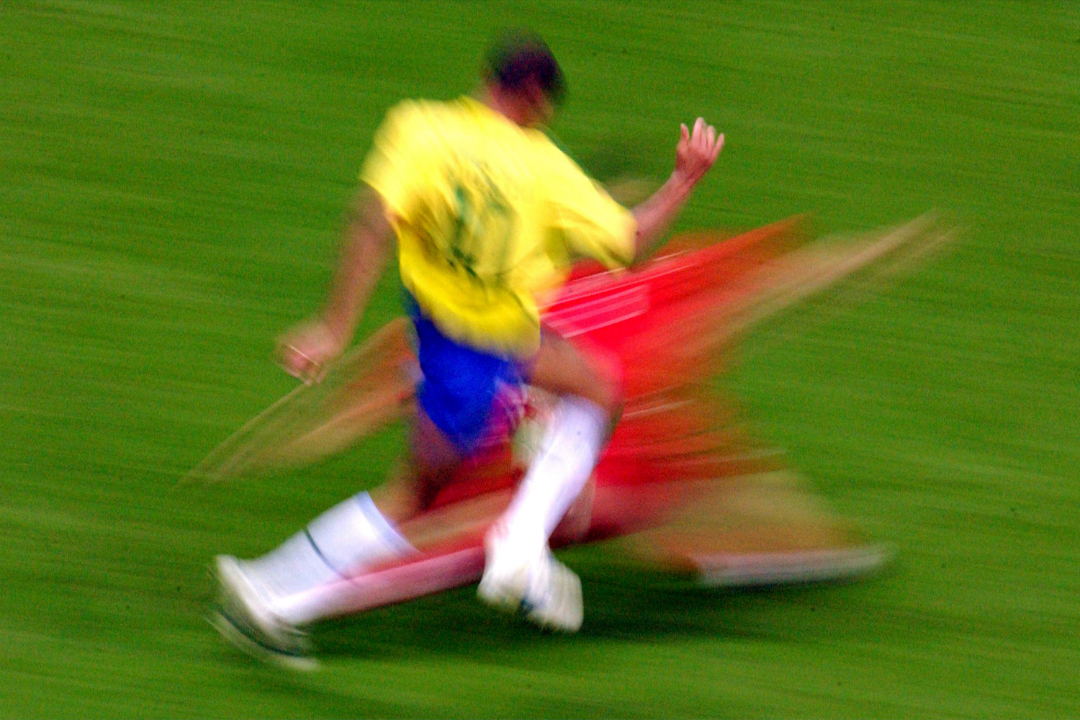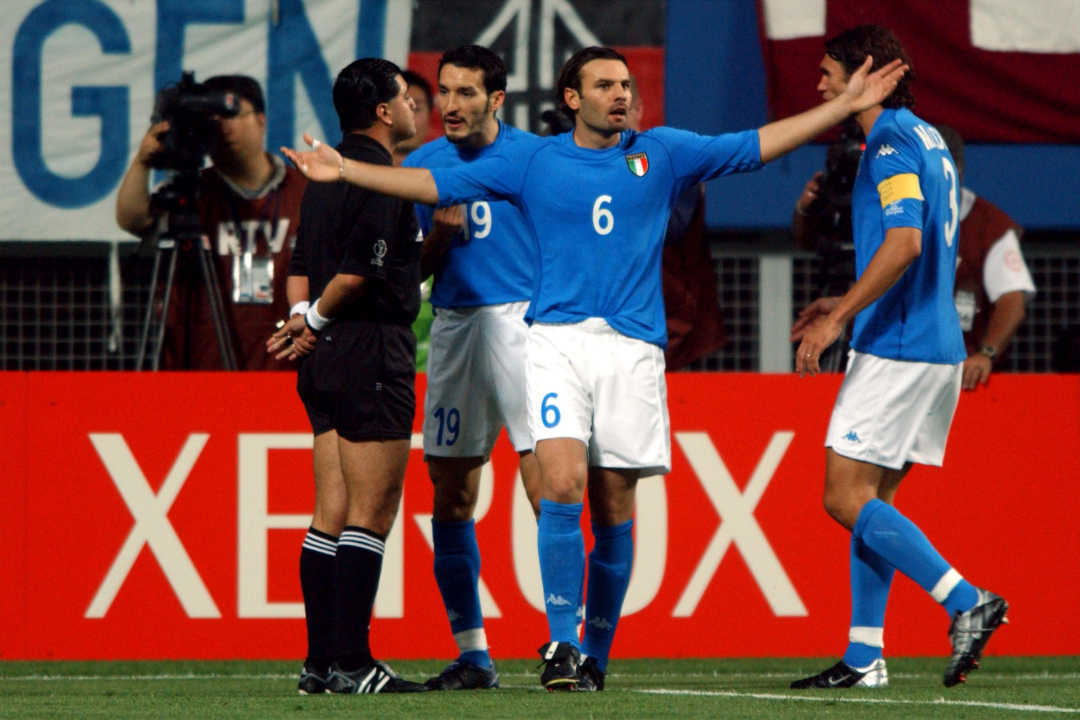Back of the Net's alternative World Cup 2002: Pants, b*llix, buffets and besmirched integrity
A sideways glance at Korea and Japan 2002 from Back of the Net

Japan and South Korea 2002 was the first World Cup to be hosted by two countries, the first to be held in Asia, and the first to see millions of people across Britain wake up at 7am to watch Sweden draw 0-0 with Nigeria.
This tournament isn't generally remembered as a classic: several major nations failed to perform, contentious refereeing decisions abounded and the mascots were nightmarishly awful, meaning that the official logo, one of the best in World Cup history, is often unfairly forgotten.
A month full of shocks ended with a final between history’s two most successful teams, Brazil and Germany, in the scriptwriters’ mistaken belief that this would be the biggest shock of all.
Favourites fall early
Champions France had their pants pulled down by Senegal in the opening game, and failed to locate replacement pants, or a goal, in either of their next two matches. The shame of recording the worst ever World Cup performance weighed heavily on the French, who finally resolved to make everyone forget about 2002 by being even worse in 2010.
Also in the group stages, Portugal were deservedly beaten by the USA and an uninspiring England eliminated an even less inspiring Argentina. The English briefly looked like world-beaters in seeing off Denmark in round two, before looking like England again in getting knocked out by Brazil.
Samba football having proved a failure in 1998, the Brazilians ground their way to the final with a cynical, regimented foxtrot, their tournament summed up when Rivaldo pretended to have been hit by a fireball from Turkish defender Hadoukan Unsal.
Get FourFourTwo Newsletter
The best features, fun and footballing quizzes, straight to your inbox every week.

Keane attacks McCarthy’s bollix
Mick McCarthy’s Republic of Ireland dug deep into their reserves of luck, and borrowed heavily against their future luck, to qualify for the finals by beating Iran in a play-off. Days before the tournament began, Irish captain Roy Keane sensationally quit the squad, having derided McCarthy’s abilities, his Irishness, and, most insultingly of all, his bollix, a type of all-purpose storage facility that McCarthy greatly prized.
Shorn of their best player, Ireland were knocked out in the second round by Spain, in a match that is now considered the turning point in Spain’s transformation from perennial outsiders to world champions. Most pundits believe that had Keane been playing, European football would have been dominated for the next decade not by Spain and Barcelona but by Ireland and Shamrock Rovers.
Hosts outstay welcome
Few expected the Japanese to pull up any trees, not least because the cherry blossom has great symbolic importance in Japanese culture, but the Blue Samurai topped their group before bowing out in the second round to Turkey. Their feats were overshadowed by their co-hosts, however, as South Korea, guided by Guus Hiddink, beat Poland and Portugal to set up a second-round clash with Italy.
Despite being overwhelming favourites, the Italians were undone by their combination of wastefulness and lethargy, anticipating the fate of the Italian economy by several years, and a golden goal from Ahn Jung-Hwan sealed a shock victory for the hosts. Questions were raised over the performance of referee Byron Moreno, whose alleged bias towards the home side inspired howls of outrage in Italy, which was united in disbelief that anyone might attempt to besmirch the integrity of the beautiful game.

Korea would then beat Spain, thanks in part to another controversial refereeing performance, before finally being eliminated by Germany. Having exceeded all expectations, Hiddink was borne in triumph to an all-you-can-eat Korean buffet, where he would stay for the next four years, before being tempted away to Russia by Roman Abramovich and a lifetime supply of caviar.
Collina deservedly takes prize
After a miserable, one-sided final that neither Germany nor Brazil particularly deserved to win, Italian referee Pierluigi Collina awarded the trophy to himself, which everyone agreed seemed fair.
